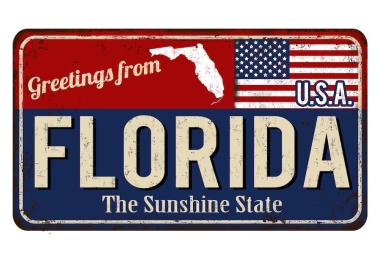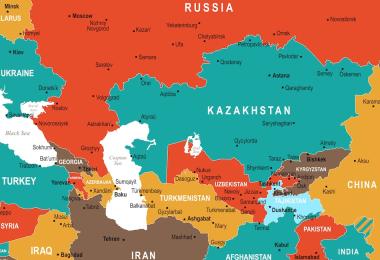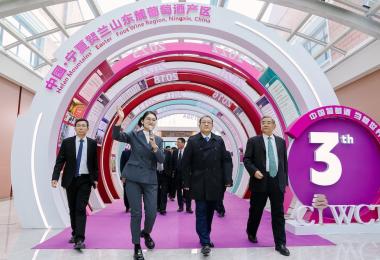The United States wine market has long been one of the world’s most confusing and difficult to navigate. It essentially functions as 50 separate markets, giving each state the power to regulate its wine sales business based on local needs and politics.
Wine producers need to sell their products through a highly fragmented, three-tier system and the associated costs, and paperwork, are significant. The process can be time consuming and most savvy consultants advise foreign producers to budget two to three years before they can really penetrate the US market. Over that growth period, they will also be expected to contribute up to 5% of their total sales to a marketing budget for samples and to make regular visits. Smart producers may also hire local sales staff or brand ambassadors to support their sales and marketing efforts.
Fortunately, a handful of experienced wine brokers and consultants are available to make the process easier. Most of them charge a monthly retainer in addition to a sales commission that can range from 3-10% depending on the cost of the wine.
How they operate
Most wineries looking to enter the market, or to broaden their market penetration or change importers, will approach a US consultant or broker. Some consultants start by showing a winery’s products to potential importers while others may present wines directly to key clients – for example, buyers at powerful chains such as Total Wine & More – or sommeliers who commission private labels.
Mick Yurch, president of the New York City-based Bluest Sky Import Group, is in the second category. “Rather than wait until after distributors in the major markets are procured, we go to work showing the wines to press, restaurants and key retailers,” he says. Creating demand before a product hits the market can help to generate interest from prospective importers.
Left: Amy Ezrin, Italian Trade Agency Top right: Mike Yurch, president, Bluest Sky Import Group
Bottom right: Steve Raye, Bevology Inc
Some consultants also initially set producers up with import sales platforms – such as MHW Ltd and Park Street – that will provide any brand with importing services for a flat fee and offer them a chance to get their feet wet in the market. Consultants, like Steve Raye of New York City-based importer Bevology Inc, will find them long-term importers once they have had some success at retail. Raye is the author of the guide How to Get US Market Ready, which covers “the three-tier system, understanding price structures and margins, which markets to choose for launch, importer and distributor selection, how to leverage scores and ratings, and a guide to which trade shows are important”.
Most trade commissions also have consultants that provide research and assistance and introductions to brands. The Italian Trade Agency, for example, offers complimentary and paid services to any Italian company producing wine, says Amy Ezrin, a New York City-based ITA wine desk manager. These include new import partner search and introductions, event and seminar planning, compliance and logistics assistance and introductions to other commercial partners.
ITA has programs for newcomers to the market and offers one-time, flat fees that are in the range of several thousand dollars, although it would not disclose specifics. The organisation collaborates with groups like Slow Wine, Vinitaly International, IEM and the magazine Gambero Rosso to offer educational opportunities, events and seminars, Ezrin says. The advantage of using the services of a trade commission is that it will already have established contacts in the US and hence may be more effective than renting a booth at a trade show.
The benefits
Experienced consultants help producers understand how to navigate the market and speak American wine sales vernacular. They can help make sales contacts and may also supply direct access to importers and distributors that can help a business and introductions to on- and off-premises buyers that make the final decisions on its products, says Sarah Davidson, senior vice-president of food and beverage at Efficient Collaborative Retail Marketing (ECRM), which is based in Solon, Ohio. “The US market is massive and growing,” she says. “All European producers want to enjoy a piece of that business, but do not understand how incredibly challenging, fractured, fraught with complications and expensive it is to work here.”
“When the US trade encounters an exporter, it’s blatantly clear pretty quickly whether they get it or not,” Raye says. He adds that US importers, and distributors, expect “prospective brands to know the US market, at least the basics… control v open [states], franchise laws, price structures and the lingo”. He helps them understand the different requirements in each state and the varying sales margins depending on the import distributor model being used. Raye recommends that all prospective clients subscribe to a bevy of industry newsletters of which he has a list on his site.
One of Raye’s clients – Tim Lightbourne, the co-founder of the Auckland-based Invivo Wines – said his company hired Raye to learn about the US market because it is about to launch the actress Sarah Jessica Parker’s yet-to-be-named wine. He adds that he works in 17 countries and none is “more complicated than the US”.
He adds that Raye did not promise any specific results, but did help his team understand who the key players are and how the three-tier system and sampling works. He was at the Wine & Spirits Wholesalers of America convention with Raye looking for importers at the time of the interview.
The bottom line is that talented consultants can get wine in front of key buyers. “The biggest advantages to working with ECRM include relationships, knowledge and process,” says Davidson.
In addition to hosting two wine and spirits marketing events a year, ECRM is focused on a variety of wine-promotional programs. During these events ECRM promotes brands to participating buyers, and makes appointments between suppliers and importers, distributors and on- and off-premises buyers.
Costs and requirements
The fees charged are usually a combination of a minor, upfront retainer and a fee based on a percentage of wine sold. Yurch of Bluest Sky Import Group charges a monthly retainer – which he didn’t want to disclose as he says every deal is different – which is usually based on the size of the winery in question. In addition, his company expects that clients will support “their brand with adequate amounts of samples, attendance at trade shows and a willingness to host the press and influencers that we send their way”.
Liza B. Zimmermann








